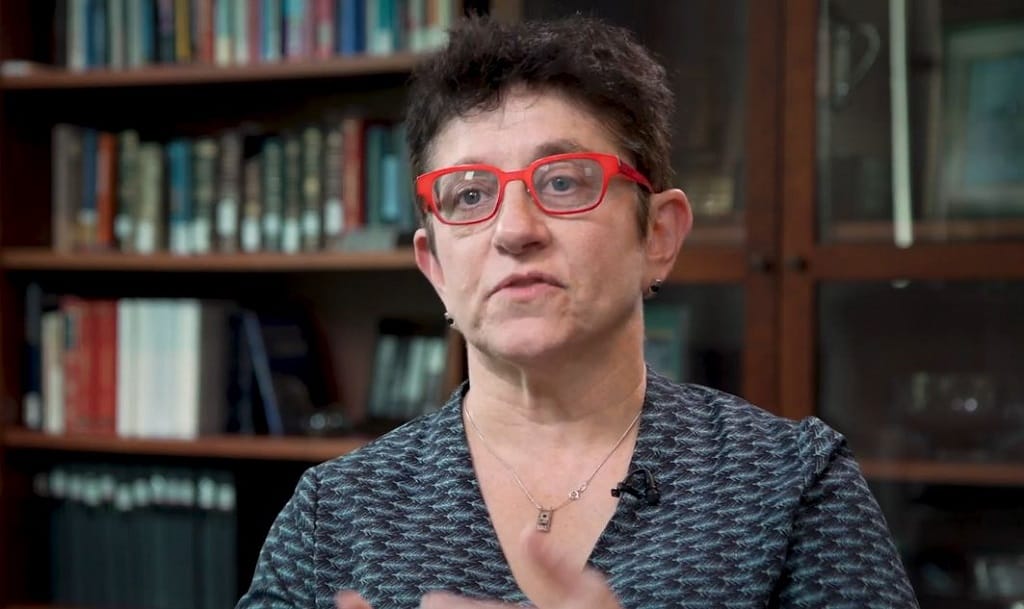Republican Concern Over Sohn, Reservation to Buy Midstate, Pause on Lifeline Phase-out
Republican senators can tolerate FCC Chairwoman Jessica Rosenworcel, but not Commissioner-nominee Gigi Sohn, says Politico.
Ahmad Hathout

November 2, 2021 – Some Senate Republicans say Gigi Sohn, nominated last week by President Joe Biden to be the Federal Communications Commission’s fifth commissioner, would be too heavy-handed on regulation for their liking, according to Politico.
While Republican senators can tolerate FCC chair nominee Jessica Rosenworcel, according to the publication Sen. Roger Wicker, R-Mississippi, and Senate Minority Whip John Thune, R-South Dakota, don’t see the same in Sohn.
“Sohn, obviously, her views are going to be very far apart from where mine are on all the issues,” Thune told the publication. “She’s very left, she’s going to be a heavy hand in regulation, very heavy in net neutrality.”
Sohn, who was previously president and CEO internet advocacy group Public Knowledge, has been a staunch advocate of net neutrality, the principle that no internet service provider can influence the content of the network traffic.
Those past positions, and statements she’s made in that vein, “could prove to be of concern to members of the committee,” Wicker said, according to Politico.
The nominees must be approved by the Senate, whose Democrats have been marred by a stonewall in Kyrsten Sinema, D-Arizona, and Joe Manchin, D-West Virginia, who have not toed the party line on all their agenda items, including a massive social spending bill that threatened to delay House votes on the Senate-approved infrastructure bill.
Reservation buys Midstate
North Dakota-based Midstate Telephone Company and Reservation Telephone Cooperative have filed a joint application to the Federal Communications Commission asking for it to approve Reservation’s purchase of Midstate.
The application, filed Friday, would see Reservation acquire all operations and assets of the Midstate company, which the companies say will “promote the public interest by enabling the Applicants to achieve economies of scale.
“The proposed transaction will strengthen the Midstate Companies’ combined competitive position by allowing the Midstate Companies’ to leverage RTC’s financial, technical and managerial resources to continue to provide high-quality services and compete effectively in the telecommunications marketplace,” the application said.
The companies said no service disruptions will be experienced by Midstate customers.
Reservation is a cooperative that is owned by member subscribers, none of which own or control more than 10 percent equity in the company.
Associations concerned about Lifeline subsidy phase-out
The National Tribal Telecommunications Association has backed concerns by the NTCA Rural Broadband Association about an FCC proposal to phase-out a $5.25 subsidy on standalone voice service subscribers, which comes from the long-standing Lifeline program.
The concern is that the move, which would take effect December 1 this year, would harm low-income and older individuals, who don’t use broadband and rely on voice service “as an affordable method of contacting health care providers, government agencies, and public safety,” the NTCA said.
The phase-out plan was instituted in 2016, when the agency adopted a reform and modernization proposal for the program that included support for broadband.
“With many of these elderly Native Americans on fixed incomes, their connection is at risk unless more funds can be found to pay for the increased charge previously covered by the federal Lifeline program. Nothing about these vulnerable Native Americans has changed, other than the elimination of vital support for their connection to the outside world, including emergency and health care services,” the NTCA added.
The NTCA is asking for the FCC to delay the credit elimination on an expedited basis to protect vulnerable Americans.
Adrianne Furniss, the executive director of the Benton Institute for Broadband and Society, has also urged the commission to pause the move, which she said will impact nearly 800,000 Americans who receive the subsidy through the Universal Service Fund, itself the subject of talk for reform.











Member discussion